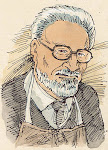… in the Minneapolis Star Tribune notes that the most charitable description of what’s been going on at the clubby University of Minnesota medical school would be “bizarre.”
Saturday, December 8, 2007

Chancellor John D. Wiley, who has earned a reputation as a campus builder and a farsighted leader since becoming the University of Wisconsin-Madison’s chief executive in 2001, announced today (Friday, Dec. 7) that he will step down in September 2008.
Wiley, 65, says the timing is right for him to step out of the chancellor’s role, which will allow his successor the time to prepare for the university’s reaccreditation and for the 2009-11 state budget.
Gov. Jim Doyle praised Wiley’s achievements as the leader of the UW System’s flagship university.
“A world-leading research institution that drives our economic growth, highly educated graduates ready for the jobs of the future — this is John Wiley’s legacy,” Doyle says.
The governor adds, “Chancellor Wiley has been an excellent leader whose work to rebuild campus, particularly in the areas of science, engineering, business and medicine, has made the University of Wisconsin the envy of the nation. From the Institutes for Discovery to the Great Lakes Bioenergy Research Center, Chancellor Wiley has helped build an economic engine that will drive Wisconsin’s future. Above all, he has demanded the highest education standards for Wisconsin students, ensuring a bright future for them and our state.”
“It’s been a period of cut after cut, as the state faced difficult fiscal problems. To the extent that we were able to do that with minimal adverse effect on academic programs, I’m very proud of that,” Wiley says. “Our faculty and staff have worked through some difficult times because of those fiscal constraints, and that’s a tribute to their dedication to our mission.”
A significant part of the university’s success has been in the deans that have led its colleges and schools, Wiley says.
“One of the things that I am most proud of is the quality, innovation and teamwork that this group of deans has shown,” the chancellor says. “They are a talented and dynamic group whose leadership and judgment are indispensable.”
Under Wiley’s leadership, the university’s research enterprise thrived. According to the National Science Foundation, UW-Madison now conducts more than $900 million worth of research annually — a substantial achievement, given the intense competition among universities for research funding and the flattening of federal and state budgets.
The university’s drive to attain research breakthroughs has landed substantial grants for the university during the Wiley years. In September, the university received the largest formal grant in its history — $125 million over five years from the U.S. Department of Energy to fund the work of the Great Lakes Bioenergy Research Center.
“What makes us a public university is not where our budget comes from so much as what our mission is. As a public university, we have a mission to serve the state and serve the public,” he says. “We’ve got to figure out how we can continue to be focused on the public mission of providing research and high-quality teaching and outreach to the public when the public, directly through the taxpayers, is providing less and less of the base budget that keeps it all going.”Wiley received his bachelor’s degree in physics from Indiana University in 1964. He attended graduate school at UW–Madison as a National Science Foundation Fellow, receiving master’s and doctoral degrees in physics in 1965 and 1968, respectively. He joined the technical staff of Bell Telephone Laboratories at Murray Hill, N.J., from 1968–1974, and then spent a year at the Max Planck Institute in Stuttgart, Germany, as a recipient of the Alexander von Humboldt Senior U.S. Service Award for Research and Training.
Wiley points to his father as the first key influence in his life. A pharmacist who raised his family in Evansville, Ind., Wiley’s father had a zest for learning. He taught himself five languages, read constantly and continually nurtured his interest in astronomy. “He used to take me to the local museum and planetarium frequently when I was very small,” Wiley says of his father. “He taught me all the constellations we could see from Evansville. He also helped me set up a very elaborate chemistry laboratory in the basement.”
Since research seems to be so important in the modern university, perhaps more scientists should go into administration?
Live long and prosper, John.
Wisconsin has been very fortunate to have such a talented chancellor. Good leadership does indeed make a difference and is critical for public research universities with ambitious aspirations.
Addendum (12/11/07):
I have had the rare privilege of working closely with Chancellor Wiley for the past 10 years. John is an outstanding advocate and highly principled leader who has steadfastly argued for excellence, access, opportunity and transparency in higher education, as well as the historic responsibility for consistent public support of higher education. His work on behalf of the University of Wisconsin, his state and the nation stands as an inspiring legacy of achievement.




No comments:
Post a Comment